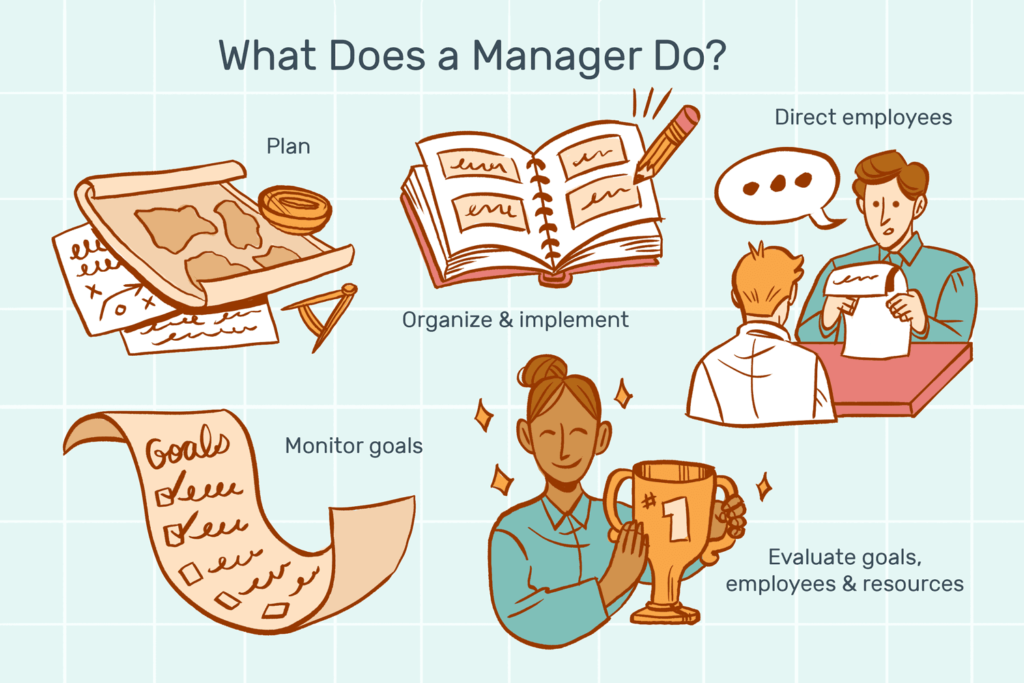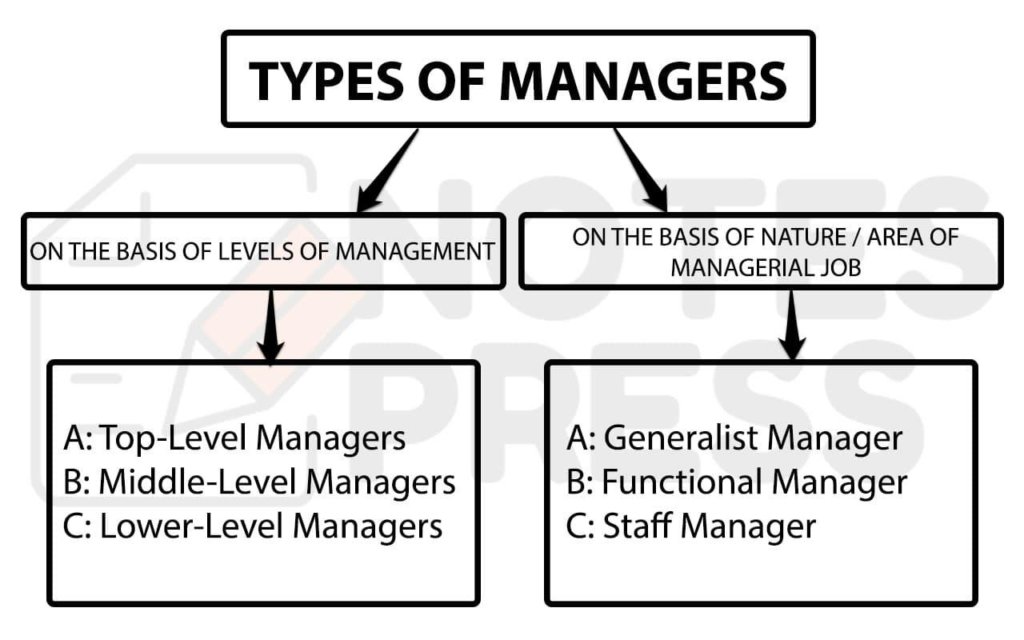10 Must-Have Qualities of a Good Manager

When it comes to the world of business, managers are vital players. They are responsible for the success or failure of a company, and they play a huge role in day-to-day operations. Having managers who possess the right qualities and skills can be the difference between success and failure.
So what makes a good manager? What qualities do they need to have to be successful? In this blog post, we will discuss 10 qualities that are essential for managers to lead with the heart and the mind, keep reading!

What do we mean when we say managers should lead with the heart and the mind? Easy! Managers must be a leader who is genuinely interested in developing their team and caring for the people around them, while still making strategically sound decisions.
In today’s world, managers need to be more than just a boss. They must possess 21st-century skills to lead in a world that is rapidly changing and full of disruption while still performing the traditional duties of a manager.
Manager leadership ensures that all operational activities are run efficiently, from managing resources and staff to achieving objectives
According to Indeed.com, managers are responsible for planning, directing, and overseeing company operations. They are also in charge of hiring and training employees, delegating tasks, budgeting resources, motivating staff members, and creating a productive environment.

Let’s review this position more in-depth!
Roles and Responsibilities of a Manager
Managers have a range of important duties and responsibilities within any business.
Scheduling and Task Delegation
Managers must ensure that all staff are properly assigned duties within their roles and that they can efficiently complete them. They have to manage multiple projects simultaneously, ensuring that deadlines are met and addressing any potential issues along the way.
Also, managers need to be good delegators, making sure that each task is given to the appropriate team member and providing necessary guidance where needed. They will actively monitor and adjust deadlines as needed and communicate regularly with the team to ensure all duties are completed on time.
Training Employees
A manager’s role in employee training is to ensure that new and existing personnel have the skill set required to fulfill their job roles successfully. This can include providing instructions on new processes, leading them through more complex tasks, and providing feedback on performance.
Training managers must tailor their approach based on the individual needs of their staff to provide an effective learning environment equipped with the tools needed to grow professionally, making sure that all those working in the organization are aware of the expectations, limits, and what is expected from them.
Peacemaker
Managers have the important responsibility of managing conflicts among employees. Taking a proactive stance, managers must analyze the situation and ensure that all parties are allowed to express their views, listen to the concerns of each party, work out how the parties can best cooperate, and come to a resolution promptly.
As managers should be aware of possible implications of conflict resolution and take on preventative measures for future occurrences, they should ensure that appropriate action is taken to promote fairness and respect.
Budgeting
Managers are responsible for efficiently budgeting their department’s spending so that they can make the best use of financial and material resources. This duty requires managers to be knowledgeable and up-to-date on market trends that could affect items necessary for their business.
They must have strong communication and negotiation skills to get the best deals available, while also balancing the need to secure good quality products or services with cost-effectiveness. Furthermore, managers must regularly review invoices to ensure accuracy with vendor statements, as well as oversee any group purchases made by their teams.
Conducting Performance Reviews
Performance reviews can help managers to identify specific areas of individual improvement, as well as nurture areas of strength, to cultivate a positive work environment. Managers need to be prepared with meaningful questions that reinforce the value of feedback, rather than just asking how an employee is feeling about their job satisfaction.
By asking for reflections on performance along with providing the necessary support for employees to reach their productivity goals, managers can maximize team efficiency and bring out the best qualities in all employees.
Hiring New Employees
Managers are responsible for conducting performance reviews to assess the productivity and effectiveness of their employees. Performance reviews can help managers to identify specific areas of individual improvement, as well as nurture areas of strength, to cultivate a positive work environment.
Managers need to be prepared with meaningful questions that reinforce the value of feedback, rather than just asking how an employee is feeling about their job satisfaction.
By asking for reflections on performance along with providing the necessary support for employees to reach their productivity goals, managers can maximize team efficiency and bring out the best qualities in all employees.
Styles of Managers
Managers come in many shapes and sizes. At their core, managers are responsible for supervising a team of employees that work towards a common goal. There are many different types of managers, each using different approaches to lead their teams.
- A hands-on manager typically works side by side with their team and focuses on teaching processes while motivating team members through recognition and rewards.
- A facilitative manager takes a more collaborative approach and actively promotes problem-solving within the group.
- Autocratic managers have control over the decision-making process and direct employees on how to complete tasks most efficiently.
- Transformational managers lead by example and guide as employees progress toward goals that align with the organization’s mission statement.
- Situational managers will use different managerial styles based on the needs of a particular task or situation.
It’s also common for managers to be able to switch between different management styles depending on the situation; it’s all part of developing an effective leadership team!
It’s also important to know that there are different types of managers in the modern workplace. Below, you got a brief overview of the managers that you can find today.

10 Qualities of a Good Manager that Lead to Success
Most managerial qualities are not taught in school, and managers need to be effective by learning on the job. Here are 10 qualities of a good manager that lead to success:
1) Listening Skills
A Forbes article mentions the power of listening is the number one skill for managers. Why? Because a successful manager understands the importance of being an effective listener and listening to their team’s needs, concerns, and feedback.
Being an active listener means avoiding assumptions and gathering all the necessary information to gain a clear understanding of the team’s points of view. However, how can you accurately gather information? Let’s help ourselves with the “Four Ears Principle“

Friedemann Schulz von Thun, a German professor developed the Four Ears Principle. And nowadays, it can be used as a powerful lens for managers to make sense of exchanges between their teams.
This model proposes 4 distinct layers of communication. It states that every message contains a
- Factual layer, containing the actual facts and information.
- Self-revelation layer which involves our personal feelings and opinions
- The relationship layer involves how we relate to each other in conversations and finally,
- The appeal layer refers to requests or advice.
Each layer provides insights into how someone feels or intends to come across in what they are saying; this is especially important for people in management positions as it allows them to assess team dynamics better and create better collaborations within their organization.
Far from being a static tool, this 4-year model remains a relevant concept in today’s culture and workplaces as it helps us better process all dimensions of each conversation.
2) Decision-Making
Decision-making is a core quality of effective managers and an integral part of their role. A good decision-maker can efficiently assess situations and make decisions quickly while considering factors such as the company’s objectives and existing resources.
Managers can make better decisions by objectively evaluating available options and considering long-term impacts. Timely decision-making is important to capitalize on opportunities that arise in the competitive business environment. To foster decision-making capabilities, managers must maintain:
- open communication with their team,
- build strong relationships with colleagues,
- understand their own strengths and weaknesses and,
- consistently evaluate decision outcomes.
Developing decision-making skills is essential for any manager wanting to succeed in today’s marketplace.
3) Emotional Intelligence
Emotional intelligence (EI) is an often overlooked yet vital trait in effective management. It is the ability to understand, use, and positively manage one’s own emotions, as well as recognize and respond to the emotional states of those around them.
With emotional intelligence, managers are better able to engage with their employees and understand when taking a collaborative or individual approach will be most effective in any particular situation.

Managers with emotional maturity are also good at encouraging collaboration between team members and providing guidance that respects team members’ boundaries. They listen attentively while being open to different ideas, tactics, and strategies so that everyone can work through challenges together effectively.
- Read more about an emotionally intelligent manager here.
When conflicts arise, emotionally mature managers have the tools to mediate disagreements fairly and diplomatically. Overall, emotional intelligence is an essential quality for effective managers because it enables them to access valuable insight into their team’s concerns and identify the best way to move forward together.
4) Goal Setting
Good goal setting is the cornerstone of successful team management. By establishing clear objectives, managers can ensure that their staff remains motivated and focused on the goal at hand. To do this effectively, goal setting must be SMART: Specific, Measurable, Attainable, Relevant, and Time-Bound.

This framework helps to structure goals to ensure they are achievable and measurable. By defining what success looks like for an individual or team working towards a goal, managers can easily gauge how well everyone is progressing.
SMART goal setting also requires team members to gain a clear understanding of what the goal is and how each individual contributes towards its attainment. When done properly, goal setting is an effective way for managers to guide a team toward desired project outcomes.
5) Accountability
Accountability means you take ownership of your actions, decisions, and results. Great managers will consistently assess how their actions play out and how they can do better. They are also self-motivated and willing to accept feedback as an opportunity for growth.
- The best way for managers to hold themselves accountable is to follow trait number 4: goal setting.
Accountability requires managers to set a unified standard of employee roles, responsibilities, and expectations and also involves taking responsibility for one’s actions and decisions with both positive and negative outcomes.
Accountability helps foster an environment of trust within the workplace and highlights that all employees should take ownership of their duties.
6) Availability
Sometimes, managers get too busy and end up not having enough time for their teams. Availability implies that a manager has put their team first and has created enough time in their schedule to attend to the team’s needs.
This could mean being available to answer questions or provide guidance in difficult times, but it could also look very different with each organization. In some cases, availability may simply mean making sure to hold regular check-ins with the team or arranging additional resources or tools so that all tasks are completed accurately and efficiently.
Availability demonstrates the manager’s commitment and reminds the team that they are supported by their leader during times of need. Availability communicates trust and sets the stage for good relationships between managers and employees alike.
7) Time Management
Time management is one of the most essential skills a manager must possess. It’s not just the ability to prioritize tasks and keep track of time spent on those tasks; it’s also about having the know-how to work efficiently under time constraints.
A survey conducted by Proaction International found that managers invest most of their time in meetings and administrative tasks. Followed by conflict contention!
Even though we cannot generalize, active supervision, and training are apparently way behind the bureaucratic stuff! However, does team assistance shouldn’t be a top priority? That’s why effectively managing time is so important!
Despite being a cliché attribute, time management often poses a significant challenge for managers since they can find it difficult to juggle multiple tasks in ensuring an efficient workflow.
8) Know When to Delegate
Assigning jobs appropriately, understanding the right people for the right tasks, and releasing some of their own workloads are just a few benefits that result from delegating effectively.
Managers cannot always do all the work themselves, but having a keen eye for detail and delegation allows them to better manage workflows and employees. Not only does it free up time for other tasks, but it can also create opportunities for development throughout the organization by teaching skills to those who complete delegations.
Ultimately, effective delegation lets managers stay on top of their responsibilities while ensuring team members remain engaged in their roles and feel valued for their contributions.
9) Never Stop Learning
The position of a manager can be seen as the pinnacle, but it doesn’t mean they know it all! As managers increase their knowledge and skillset, they can retain a competitive edge over those who stand still.
Staying up-to-date on industry trends and best practices can help managers to better lead their teams, foster collaboration, manage resources, and use technology appropriately.
As well, by constantly remaining open to new ideas and changing processes, managers are able to keep up with customer demands thereby allowing their teams to stay ahead in the competitive market.
10) Know when to Use the Heart and the Mind
The heart or the mind? Thoughtful managers are able to balance the use of both their hearts and minds when making decisions. Managers should always take a step back and consider the implications of their decision-making from both an emotional and analytical point of view.
- The heart is important for managers to empathize with their team.
- The mind leads managers to stay critical and think of long-term solutions for the organization.
For instance, a manager might recognize emotional distress in an employee yet still have to handle the situation logically to enforce workplace policies or maintain fairness. Similarly, they could be presented with data-driven strategies but still have the foresight to put those strategies into context with relevant emotional considerations such as morale or culture.
This dual approach gives managers insight into how their decisions will affect their team or company, both short-term and long-term, thus creating a better foundation for success!
Takeaway
Successful managers have a wide range of qualities that they must apply to their day-to-day responsibilities. From knowing how to manage time and resources, to understanding when to delegate tasks or use their heart and mind judiciously, managers are often confronted with difficult decisions that require an attentive skill set.
Developing these skills can improve managers’ effectiveness and ultimately lead to better results.
By taking a proactive approach to management, managers can stay ahead of the game and nurture their team as they strive for success. Ready to be the best manager out there?
-The Monitask Team


